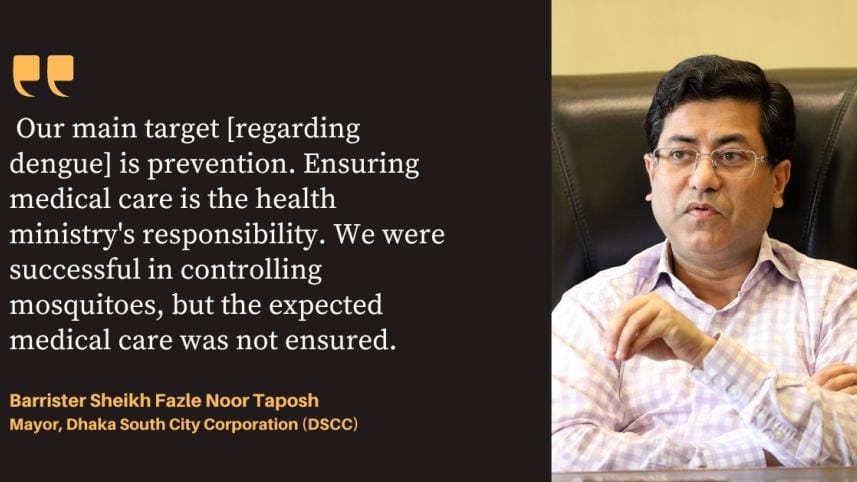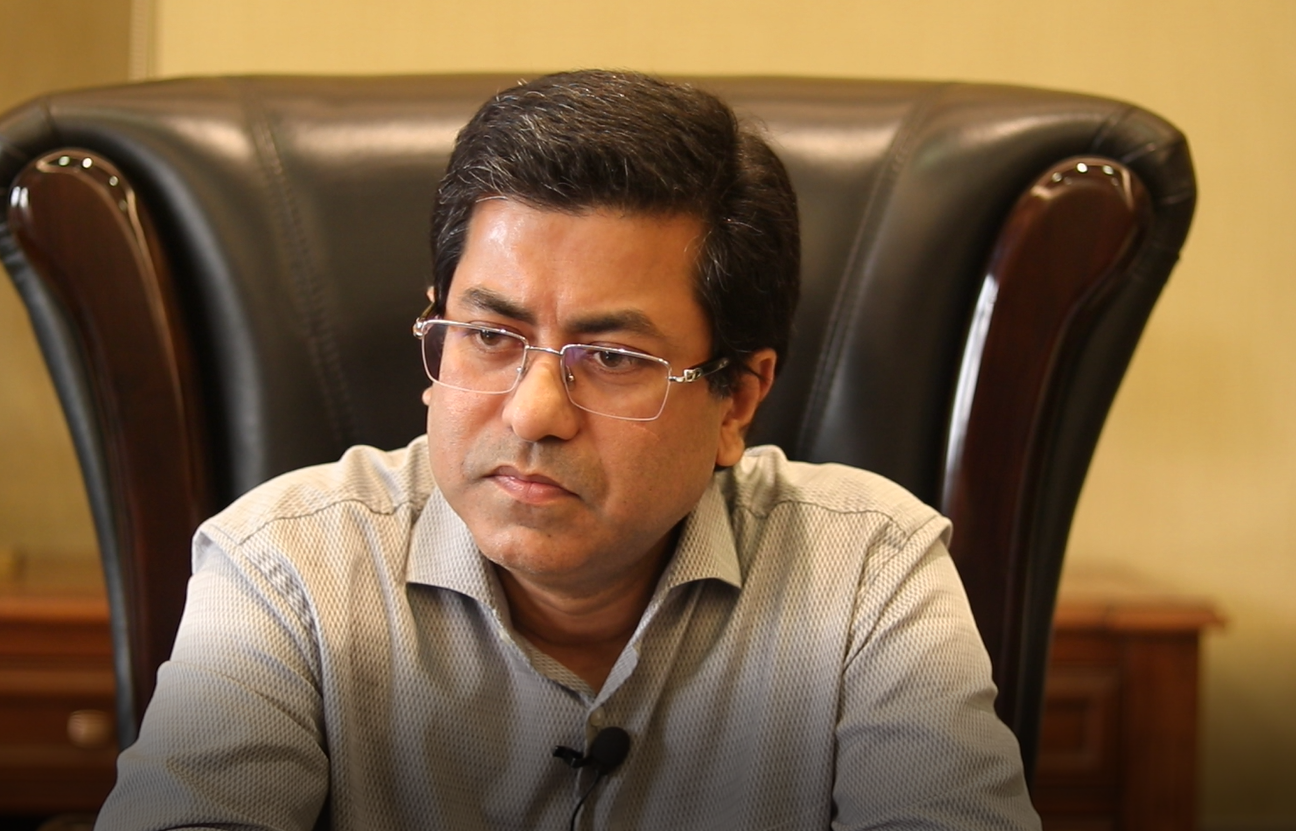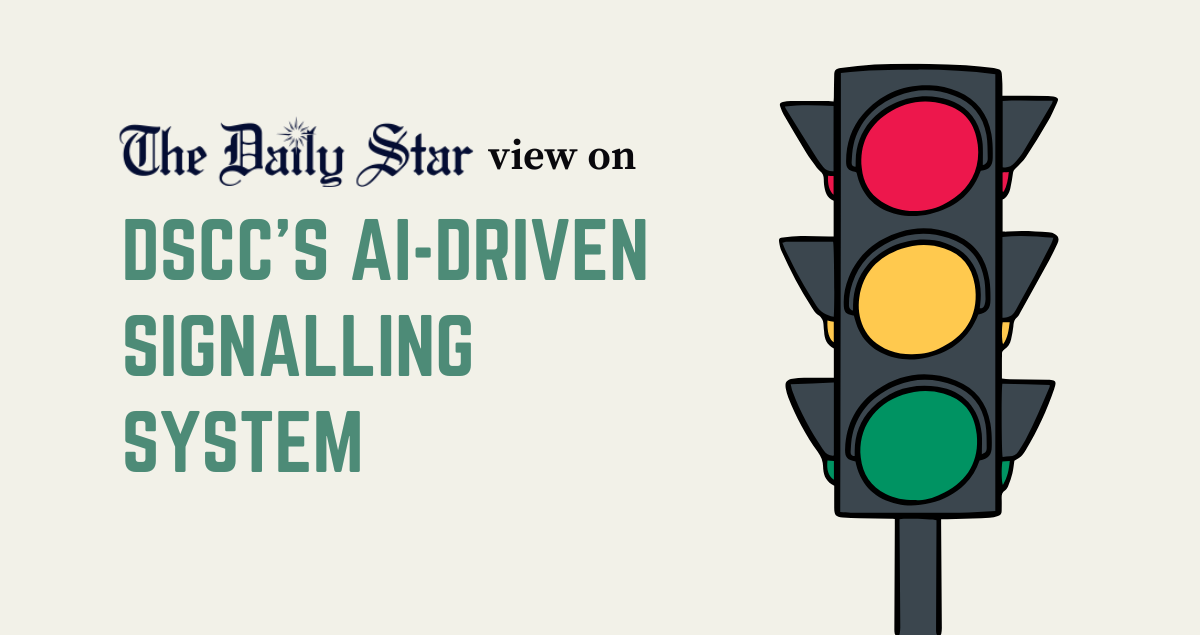'DSCC is the most corruption-free government organisation'

Barrister Sheikh Fazle Noor Taposh, mayor of Dhaka South City Corporation (DSCC), who took office on May 17, 2020, will complete four years of his five-year tenure in a few days. Speaking with Partha Pratim Bhattacharjee and Dipan Nandy of The Daily Star, the DSCC mayor talks about his achievements as well as failures, the challenges he faced, and his visions for the future.
You have completed four years of mayorship—80 percent of your tenure. Could you talk about your achievements and failures in these four years?
Let the people be the judge of my success and failure after my tenure is complete. I will not claim to have fulfilled 80 percent of the promises that I made in my election manifesto during these four years. But I must say, I have been able to do many things that I did not think I could. Discipline has been brought everywhere. The first thing I focused on was ensuring good governance at the Dhaka South City Corporation (DSCC), and I did it.
Irregularities became normal at the DSCC—the obligation to follow due process, laws and rules was absent here. Many were not discharging their responsibilities. I made changes to improve the situation. Now, I can claim that DSCC is the most corruption-free organisation among all the government institutions and organisations. We see the reflection of it in our revenue collection drive.
After assuming office on May 16, 2020, I started my journey from May 17. In that fiscal year, we collected a revenue of Tk 512 crore. In the following three fiscal years, we collected Tk 720 crore, Tk 879 crore, and Tk 1,031 crore of revenue, respectively. We generated this revenue without increasing the holding tax. The DSCC that once had to struggle to pay salaries of its employees has now become self-dependent.
Many of our resources were grabbed by various quarters; we were able to recover those resources after establishing good governance. We have freed 54 acres of land worth Tk 4,800 crore. DSCC was being deprived of its own resources due to long-standing corruption and negligence. DSCC's wealth belongs to its residents.
After carrying out many administrative reforms, the enthusiasm for work is back in the DSCC now. Before, there was no framework of waste management or any scheduled working hours for cleaners. Those who neglected their work were fired and replaced. When I took charge, there were 24 secondary transfer stations (STS) in 22 wards; now there are STS in 65 wards.
One of your achievements was reclaiming the old channel of Buriganga. What is your plan in this regard?
After taking charge, we started reclaiming the old Buriganga channel, which had been filled with waste and encroached for the last 50 years. We spent Tk 50 crore to restore the channel. Now the original Buriganga river basin is back, and the river has widened.
We have now taken up a megaplan to create a healthy and aesthetic environment on both sides of the channel so that tourists can visit and enjoy their time there. We hope to start some of the project work this year. We need the government's assistance to implement this plan.
You wanted to establish a central commercial zone in Kamrangirchar, but many residents of the area said they would become landless if it was done. What do you think?
Kamrangirchar was once the most neglected neighbourhood of Dhaka. But geographically it is a very important part of the city. We want to rebuild Kamrangirchar, and thus we have taken up the goal of upgrading the communication system in the area. An eight-lane elevated expressway is being constructed to make the area a central business district. A vested group has misled residents of the area and spread false propaganda among them about the project. I sat with those who protested against the project on behalf of Kamrangirchar residents. Now they are convinced. I can claim that the people of this city will see a drastic change in 30 years.
In your election manifesto, mosquito control was one of your top priorities. But last year, we saw new records of dengue infections and deaths. Can you evaluate your achievement in controlling mosquitoes?
If we analyse the data, it shows our success. Controlling mosquitoes is always an ongoing process. In 2019, a total of 155,000 people were infected with dengue in Dhaka, and fewer than 200 died. After taking charge in 2020, I found that the mosquito control programme was not enough. Drives to control mosquito breeding were conducted when it increased. But the countries where there is a higher quantity of mosquitoes conduct drives round the year. After taking charge, I took steps to control mosquitos round the year and engaged more manpower and purchased high-quality pesticides and equipment to curb the mosquito menace. In 2023, even though the death toll was over 900, the number of infections was brought down to 113,000. Our main target is prevention. Ensuring medical care is the health ministry's responsibility. We were successful in controlling mosquitoes, but the expected medical care was not ensured.
Curbing noise and air pollution was also in your election pledge. But as we have seen, Dhaka has become one of the top cities with the worst air quality across the globe. What initiatives have you taken to fulfil your promise?
I can admit that we have not yet taken any such initiatives to curb noise pollution as the traffic system is yet to be updated. That is why we have concentrated on upgrading the traffic signal management. We have appointed consultants to this end. Traffic management should be upgraded keeping 64 intersections in my area and movement of motorised and non-motorised vehicles in mind.
This issue was ignored before. You cannot compare Dhaka with other cities. Here, motorised vehicles ply the roads along with non-motorised vehicles. We are hoping to submit the project proposal by the end of this year and start work for implementation. This can help with curbing noise pollution, because most of the noise pollution is caused by vehicles. If we bring in proper management, noise pollution can be significantly reduced.
As for air pollution, 80 percent of it is caused by unrefined and contaminated fossil fuels. We wrote to the environment and energy ministries to look into the issue seriously. Brick kilns and construction work are also responsible for air pollution. We have asked contractors to look into the issues during construction work. We are trying to keep pollution at a tolerable level.
Do you think you have been successful in resolving the persistent waterlogging crisis?
Seventy percent of Dhaka roads used to get flooded even if there was a little rain when I took office in 2020. Then we identified 136 points including Dhanmondi Road 27, the road stretching from Azimpur to Palashi, Fakirapool, the Notre Dame College area, Motijheel, and Jatrabari. We spent Tk 103 crore of our own financing to renovate these 136 points. Where we conducted renovation work, there are no waterlogging problems. Since Dhaka has been developed in an unplanned manner, new points of such waterlogging have been created. Last year, we saw waterlogging in the New Market area, and later we found that drains were blocked inside Pilkhana that resulted in the New Market waterlogging. Some new buildings were also built over the drains inside Pilkhana, thus it took time to drain away the water. Waterlogging is a never-ending problem for Dhaka city, but we have managed to reduce waterlogging to 20 percent.
As the mayor of DSCC and a resident of Dhaka, how do you want the city to be in the future?
I don't want to see Dhaka as only a commercial city and a concrete jungle. Dhaka has its own characteristics and heritage. I want to see Dhaka with heritage, and I am working to make that happen.his article are the author's own.
Follow The Daily Star Opinion on Facebook for the latest opinions, commentaries and analyses by experts and professionals. To contribute your article or letter to The Daily Star Opinion, see our guidelines for submission.





 For all latest news, follow The Daily Star's Google News channel.
For all latest news, follow The Daily Star's Google News channel. 


Comments